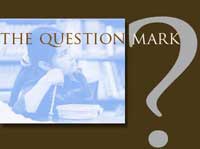The Diagnosis
Later in that day, the nurse calls.
"Your score on the Glycohemoglobin A1c was 143. You have Diabetes."
You do the obvious thing. You turn to Google and the Internet to find out what this all means. And right away you are bombarded with Web pages and organizations all wanting to help you manage your disease. It is like a Tsunami of products and services.
"Look at all the cool things you can buy from us to manage your disease."
What's wrong here?
It turns out that when blood tests report a problem level of glucose or sugar in the blood, it is a sign that you have been living in an unhealthy way. It usually means too little exercise, too much rich, high calorie, sugar laden food, too much alcohol and a bunch of other behaviors that show up as too much glucose. Thankfully, if a person makes some basic lifestyle changes, in most cases the bad tests can be replaced by good ones.
Diabetes is not a disease in the way cancer is a disease. With cancer, there are cells that do damage. With glucose, there is a person who does damage. If you improve the life style and the diet, in most cases the problem goes away.
Ask questions or surrender
While the diagnosis may be well intended, the conclusion reached by the nurse above is simply incorrect. Two blood tests report a pattern of unhealthy living. Replace unhealthy living with healthy living and those scores return to normal range. The medical industry would like you to think you are managing your disease (with their help). But it is you who now exercises five times a week, eliminates most carbs and sugars from your diet, turns to vegetables and proteins and cuts way back on alcohol consumption. You are managing your life, not your disease.
After six months of healthy living, your score on the Glycohemoglobin A1c is normal. Do you have Diabetes? Are your pre-diabetic? Or are you healthy?
What's the difference?
Labels have a surprisingly strong impact on the way we act and the way we think. The medical and pharmaceutical companies and institutions are quick to offer up pills and other products to help us manage our blood pressure, our cholesterol levels and our glucose levels. Many people take the pills rather than increasing exercise, reducing sodium intake, losing weight, reducing alcohol and eating in a healthy way.
Do you want to be the victim here? the target? the patient?
Or would you prefer to size up the situation and take control of your life style and your health?
It is big business. The costs of accepting a diagnosis without question are much more than financial. When a person first gets bad test results, it is a good time to ask dozens of questions. It is a good time to challenge the diagnosis.
- What does this test measure?
- What does this test show?
- Is the diagnosis true?
- Are there other ways to think about these scores?
- What are my choices here?
- Who can I trust?
- Who is in charge here?
- What should I do?
- What other questions should I ask?

|


